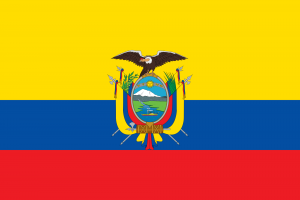Bloomberg, the media company with reporters in more than 100 countries, has corrected its dispatch originally titled, “China Signals Shrimp Virus Risk After Salmon Debacle.” Reporting on China’s General Administration of Customs announcement, the article erroneously claimed Covid-19 tests found the virus on “both the inside and outside of… shrimp packaging” imported from three Ecuadorian companies.
The McLean, Virginia, USA-headquartered National Fisheries Institute (NFI) contacted the reporting team and their editors to point out the positive Covid-19 tests were found inside the shipment container, not inside the product’s packaging.
“There was genuine confusion caused by this inaccurate reporting,” said Brandon Phillips, NFI’s senior director of communications and advocacy. “This was not an issue of semantics. It was an issue of specificity. Reports of a positive test on a shipping container as opposed to inside a product’s packaging are two very different stories.”
The Food and Drug Administration (FDA) and the United States Department of Agriculture (USDA) have been clear that Covid-19 is not a foodborne illness. In June, the FDA and USDA released a joint statement that said: “Efforts by some countries to restrict global food exports related to Covid-19 transmission are not consistent with the known science of transmission.” Further, the statement read there’s “no evidence that people can contract Covid-19 from food or from food packaging.”
“We’re disappointed that Bloomberg didn’t get the facts right the first time but we applaud them for correcting their mistake,” said Phillips. “Seafood continues to be a safe, healthy and available food that consumers should choose.”
Oversight Task Force Set Up in Ecuador
Soon after China’s ban on shrimp imports from Industrial Pesquera Santa Priscila S.A., Empacreci S.A., and Empacadora Del Pacifico Sociedad Anonima Edpacif S.A. as a result of the tests, Ecuador’s National Chamber of Aquaculture assembled a Covid-19 Oversight Taskforce (COT) to implement and monitor hygiene and food safety policies for the nation’s shrimp industry. Its primary focus is to strengthen procedures that are already established to prevent and control risks associated with the spread of the novel coronavirus (SARS-CoV-2).
Maintaining that the test results reported by Chinese inspectors do not constitute risk of Covid-19 contagion, Ecuador’s Ministry of Production, Trade, Investment and Fisheries elaborated on the subject as follows:
“This is further reinforced by the fact that several institutions related to the health field worldwide, including the Food and Agriculture Organization of the United Nations (FAO), the World Health Organization (WHO), the Center for Disease Control and Prevention (CDC), as well as the United States National Fisheries Institute, among others, confirm that coronavirus has not been proven to be transmitted through food or product packaging, including those of aquatic origin, and therefore do not have an epidemiological role in its spread.”
Last year China imported 767 million pounds of shrimp from Ecuador.






